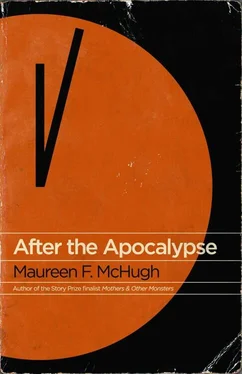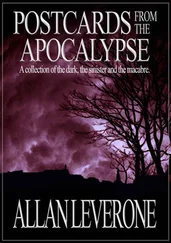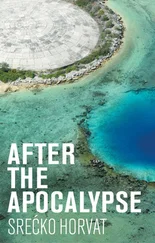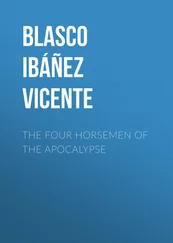“They’re going to think you had a boyfriend,” Baiyue whispered to Jieling.
“Yeah,” Jieling said, pulling the chair out from under the door handle. “And they’re going to think he’s rich.”
It was Sunday, and Jieling and Baiyue were sitting on the beach. Jieling’s cell phone rang, a little chime of M.I.A. hip-hop. Even though it was Sunday, it was one of the girls from New Life. Sunday should be a day off, but she took the call anyway.
“Jieling? This is Xia Meili? From packaging. Taohua told me about your business? Maybe you could help me?”
Jieling said, “Sure. What is your debt, Meili?”
“3,800 R.M.B.,” Meili said. “I know it’s a lot.”
Jieling said, “Not so bad. We have a lot of people who already have loans, though, and it will probably be a few weeks before I can make you a loan.”
With Mr. Wei’s capital, Jieling and Baiyue had opened a bank account. They had bought themselves out, and then started a little loan business where they bought people out of New Life. Then people had to pay them back with a little extra. They had each had jobs—Jieling worked for a company that made toys. She sat each day at a table where she put a piece of specially shaped plastic over the body of a little doll, an action figure. The plastic fit right over the figure and had cut-outs. Jieling sprayed the whole thing with red paint, and when the piece of plastic was lifted, the action figure had a red shirt. It was boring, but at the end of the week, she got paid instead of owing the company money.
She and Baiyue used all their extra money on loans to get girls out of New Life. More and more loans, and more and more payments. Now New Life had sent them a threatening letter saying that what they were doing was illegal. But Mr. Wei said not to worry. Two officials had come and talked to them and had showed them legal documents and had them explain everything about what had happened. Soon, the officials promised, they would take New Life to court.
Jieling wasn’t so sure about the officials. After all, Mr. Wei was an official. But a foreign newspaperman had called them. He was from a newspaper called the Wall Street Journal, and he said that he was writing a story about labor shortages in China after the bird flu. He said that in some places in the West there were reports of slavery. His Chinese was very good. His story was going to come out in the United States tomorrow. Then she figured officials would have to do something or lose face.
Jieling told Meili to call her back in two weeks—although hopefully in two weeks no one would need help to get away from New Life—and wrote a note to herself in her little notebook.
Baiyue was sitting looking at the water. “This is the first time I’ve been to the beach,” she said.
“The ocean is so big, isn’t it.”
Baiyue nodded, scuffing at the white sand. “People always say that, but you don’t know until you see it.”
Jieling said, “Yeah.” Funny, she had lived here for months. Baiyue had lived here more than a year. And they had never come to the beach. The beach was beautiful.
“I feel sorry for Mr. Wei,” Baiyue said.
“You do?” Jieling said. “Do you think he really had a daughter who died?”
“Maybe,” Baiyue said. “A lot of people died.”
“My father died,” Jieling said.
Baiyue looked at her, a quick little sideways look, then back out at the ocean. “My mother died,” she said.
Jieling was surprised. She had never known that Baiyue’s mother was dead. They had talked about so much, but never about that. She put her arm around Baiyue’s waist, and they sat for a while.
“I feel bad in a way,” Baiyue said.
“How come?” Jieling said.
“Because we had to steal capital to fight New Life. That makes us capitalists.”
Jieling shrugged.
“I wish it was like when they fought the revolution,” Baiyue said. “Things were a lot more simple.”
“Yeah,” Jieling said, “and they were poor and a lot of them died.”
“I know,” Baiyue sighed.
Jieling knew what she meant. It would be nice to … to be sure what was right and what was wrong. Although not if it made you like Mr. Wei.
Poor Mr. Wei. Had his daughter really died?
“Hey,” Jieling said, “I’ve got to make a call. Wait right here.” She walked a little down the beach. It was windy and she turned her back to protect the cell phone, like someone lighting a match. “Hello,” she said, “hello, Mama, it’s me. Jieling.”
“Señora? ” The man standing at my screen door is travel stained. Migrant, up from Mexico. The dogs haven’t heard him come up, but now they erupt in a frenzy of barking to make up for their oversight. I am sitting at the kitchen table, painting a doll, waiting for the timer to tell me to get doll parts curing in the oven in the workshed.
“Hudson, Abby!” I shout, but they don’t pay any attention.
The man steps back. “Do you have work? I can, the weeds,” he gestures. He is short-legged, long from waist to shoulder. He’s probably headed for the Great Lakes area, the place in the U.S. with the best supply of fresh water and the most need of farm labor.
Behind him is my back plot, with the garden running up to the privacy fence. The sky is just starting to pink up with dawn. At this time of year I do a lot of my work before dawn and late in the evening, when it’s not hot. That’s probably when he has been traveling, too.
I show him the cistern and set him to weeding. I show him where he can plug in his phone to recharge it. I have internet radio on; Elvis Presley died forty-five years ago today, and they’re playing “(You’re So Square) Baby I Don’t Care.” I go inside and get him some bean soup.
Hobos used to mark code to tell other hobos where to stop and where to keep going. Teeth to signify a mean dog. A triangle with hands meant that the homeowner had a gun and might use it. A cat meant a nice lady. Today the men use websites and bulletin boards that they follow, when they can, with cheap smartphones. Somewhere I’m on a site as a ‘nice lady’ or whatever they say today. The railroad runs east of here, and it’s sometimes a last spot where trains slow down before they get to the big yard in Belen. Men come up the Rio Grande hoping to hop the train.
I don’t like it. I was happy to give someone a meal when I felt anonymous. Handing a bowl of soup to someone who may not have eaten for a few days was an easy way to feel good about myself. That didn’t mean I wanted to open a migrant restaurant. I live by myself. Being an economic refugee doesn’t make people kind and good, and I feel as if having my place on some website makes me vulnerable. The dogs may bark like fools, but Hudson is some cross between border collie and golden retriever, and Abby is mostly black lab. They are sweet mutts, not good protection dogs, and it doesn’t take a genius to figure that out.
I wake at night sometimes now, thinking someone is in my house. Abby sleeps on the other side of the bed, and Hudson sleeps on the floor. Where I live it is brutally dark at night, unless there’s a moon—no one wastes power on lights at night. My house is small, two bedrooms, a kitchen, and a family room. I lean over and shake Hudson on the floor, wake him up. “Who’s here?” I whisper. Abby sits up, but neither of them hears anything. They pad down the hall with me into the dark front room, and I peer through the window into the shadowy back lot. I wait for them to bark.
Many a night, I don’t go back to sleep.
But the man at my door this morning weeds my garden and accepts my bowl of soup and some flour tortillas. He thanks me gravely. He picks up his phone, charging off my system, and shows me a photo of a woman and a child. “My wife and baby,” he says. I nod. I don’t particularly want to know about his wife and baby, but I can’t be rude.
Читать дальше












